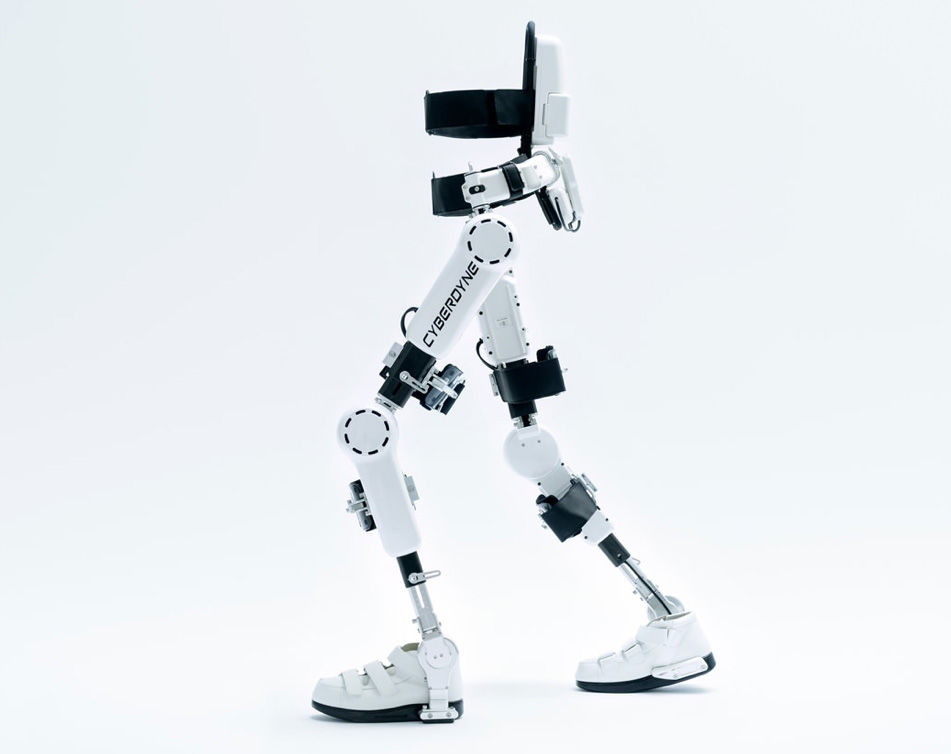<リノさんのロボット社会論#27> 世界をぶっちぎりリードする日本の支援用ロボット
◆アキハバラニュース・エディター リノ・J・ティブキー◆
**人気のロボットスーツ
10月に開催された「ジャパンロボットウィーク2016」で、国内外の企業や研究機関が開発したさまざまな支援ロボットを見ることができた。それらは基本的に同じようなものだが、人間の下半身、上半身、あるいは全身の動きを支援する機種があったほか、形状や駆動源などでも違いが見られた。移動ができない通常のロボットに比べ、人間が装着する外骨格ロボット(ロボットスーツ)ではより多くの機種が展示されていた。
サイバーダインのロボットスーツは間違いなくこの分野のリーダーだ。これまでに日本と欧州で医療用の承認を受け、医療保険の対象とする保険会社も増えている。最近では第7回ロボット大賞(日本機械工業連合会と各省庁が共催)で創設された厚生労働大臣賞を「HAL医療用下肢タイプ」が初受賞し、ジャパンロボットウィークにも展示されていた。それに加え、同社の製品が米国食品医薬品局(FDA)で承認に向け審査中であることも11月初めに発表された。
こうした成功は当然とも言える。10年近い研究開発、実証実験の後、2012年後半に同社のHALは国際標準化機構(ISO)から非常に重要な認証を取得し、13年初めには日本品質保証機構(JQA)から輸出に必要なグローバルの安全承認を受けた。さらに同年後半には、ISOが支援ロボットの国際規格について、日本国内での規定を基礎とすることを決定した。ここでサイバーダインの功績がきわめて大きい役割を果たしたことは疑いようもない。
前回の連載では、ホンダの人工知能(AI)研究について脱国際化の動きに懸念を示した。ホンダにはそれなりの理由があり、不合理なわけではない。とはいえ、サイバーダインの非常に積極的で、成功を収めた国際展開のアプローチと、対比しないわけにはいかない。
もちろん、製品の大きさや構成といった点で、ホンダとサイバーダインは全く違った会社であることは言うまでもないし、両社を比較するのはおそらく適当ではない。しかし、まぎれもなく明らかと言えるのは、サイバーダインが日本の現在および未来におけるロボット経済の一部であり、技術的な孤立主義ではないということだ。
とりあえず、サイバーダインの米国でのFDA承認のニュースを心待ちにしていよう。(隔週水曜日に掲載)
Mr. Reno's Robot Society #27
Last month at Japan Robot Week, we saw a impressive range of assistive robotic devices from domestic and international firms, in addition to private and public research institutions, all offering fundamentally similar yet subtly varied versions of lower body, upper body, and combined systems (varying slightly in geometry and power source, among other factors). It’s possible that exoskeletal robotics were present in greater number than any other non-mobile robotic systems.
Exoskeletal devices from Cyberdyne, Inc., the market sector’s definitive leader, have been granted domestic and European approval for medical use, are increasingly supported by health insurance providers, and, most recently, were honored as part of JRW 2016’s 7th Robotics Awards, earning the first-ever award sponsored by the Ministry of Health, Labor, and Welfare. Additionally, as announced earlier this month, Cyberdyne’s products are now under review by the American Food and Drug Administration (FDA).
Their success is well deserved. After nearly a decade of research, development, and demonstration, in late 2012 HAL devices were granted all-important certification by the International Organization for Standardization (ISO), and in early 2013, they received the necessary-for-export global safety certification from the Japan Quality Assurance Organization. Later that year, the ISO decided to base its worldwide standards for assistive robotics on those set forth domestically in Japan; it’s undeniable that Cyberdyne’s achievements played a sizeable role in this decision.
In the last MRRS (#26), we expressed concern about Honda’s plans to de-internationalize its artificial intelligence research. They have their reasons and they’re not illogical, but we can’t help but contrast their approach with Cyberdyne’s aggressive, highly successful international outreach.
Of course, in size and product range, it goes without saying that Honda and Cyberdyne are two extremely different corporations, and perhaps it’s inappropriate to compare the two. However, we can’t help but mention the glaringly obvious: Cyberdyne is unquestionably part of Japan’s current and future robotics economy - technological isolationism is not.
Just something to keep in mind as we await news of Cyberdyne’s American approval!
10月に開催された「ジャパンロボットウィーク2016」で、国内外の企業や研究機関が開発したさまざまな支援ロボットを見ることができた。それらは基本的に同じようなものだが、人間の下半身、上半身、あるいは全身の動きを支援する機種があったほか、形状や駆動源などでも違いが見られた。移動ができない通常のロボットに比べ、人間が装着する外骨格ロボット(ロボットスーツ)ではより多くの機種が展示されていた。
サイバーダインのロボットスーツは間違いなくこの分野のリーダーだ。これまでに日本と欧州で医療用の承認を受け、医療保険の対象とする保険会社も増えている。最近では第7回ロボット大賞(日本機械工業連合会と各省庁が共催)で創設された厚生労働大臣賞を「HAL医療用下肢タイプ」が初受賞し、ジャパンロボットウィークにも展示されていた。それに加え、同社の製品が米国食品医薬品局(FDA)で承認に向け審査中であることも11月初めに発表された。
こうした成功は当然とも言える。10年近い研究開発、実証実験の後、2012年後半に同社のHALは国際標準化機構(ISO)から非常に重要な認証を取得し、13年初めには日本品質保証機構(JQA)から輸出に必要なグローバルの安全承認を受けた。さらに同年後半には、ISOが支援ロボットの国際規格について、日本国内での規定を基礎とすることを決定した。ここでサイバーダインの功績がきわめて大きい役割を果たしたことは疑いようもない。
国際化が成功のカギに
前回の連載では、ホンダの人工知能(AI)研究について脱国際化の動きに懸念を示した。ホンダにはそれなりの理由があり、不合理なわけではない。とはいえ、サイバーダインの非常に積極的で、成功を収めた国際展開のアプローチと、対比しないわけにはいかない。
もちろん、製品の大きさや構成といった点で、ホンダとサイバーダインは全く違った会社であることは言うまでもないし、両社を比較するのはおそらく適当ではない。しかし、まぎれもなく明らかと言えるのは、サイバーダインが日本の現在および未来におけるロボット経済の一部であり、技術的な孤立主義ではないということだ。
とりあえず、サイバーダインの米国でのFDA承認のニュースを心待ちにしていよう。(隔週水曜日に掲載)
【略歴】Reno J.Tibke ロボット、サイバネティクス、人工知能についての民間研究家兼評論家。Anthrobotic.comの創設者であり、国際的なロボットニュースサイト「ロボハブ」(Robohub.org)の創設メンバーかつ執筆者。東京を拠点とするアキハバラニュース(AkihabaraNews.com)のエディターでマルチメディア映像制作プロダクション「デジタルハブ」(DigitalHub.JP)共同創設者。米モンタナ州出身。
Mr. Reno's Robot Society #27
Japan’s Assistive Robotics Continue Leading the World. By Far.
Assistive, Exoskeletal Robotics are Hot
Last month at Japan Robot Week, we saw a impressive range of assistive robotic devices from domestic and international firms, in addition to private and public research institutions, all offering fundamentally similar yet subtly varied versions of lower body, upper body, and combined systems (varying slightly in geometry and power source, among other factors). It’s possible that exoskeletal robotics were present in greater number than any other non-mobile robotic systems.
Additional Milestones for the Market Leader
Exoskeletal devices from Cyberdyne, Inc., the market sector’s definitive leader, have been granted domestic and European approval for medical use, are increasingly supported by health insurance providers, and, most recently, were honored as part of JRW 2016’s 7th Robotics Awards, earning the first-ever award sponsored by the Ministry of Health, Labor, and Welfare. Additionally, as announced earlier this month, Cyberdyne’s products are now under review by the American Food and Drug Administration (FDA).
Their success is well deserved. After nearly a decade of research, development, and demonstration, in late 2012 HAL devices were granted all-important certification by the International Organization for Standardization (ISO), and in early 2013, they received the necessary-for-export global safety certification from the Japan Quality Assurance Organization. Later that year, the ISO decided to base its worldwide standards for assistive robotics on those set forth domestically in Japan; it’s undeniable that Cyberdyne’s achievements played a sizeable role in this decision.
Internationalization; an Ongoing Success Story
In the last MRRS (#26), we expressed concern about Honda’s plans to de-internationalize its artificial intelligence research. They have their reasons and they’re not illogical, but we can’t help but contrast their approach with Cyberdyne’s aggressive, highly successful international outreach.
Of course, in size and product range, it goes without saying that Honda and Cyberdyne are two extremely different corporations, and perhaps it’s inappropriate to compare the two. However, we can’t help but mention the glaringly obvious: Cyberdyne is unquestionably part of Japan’s current and future robotics economy - technological isolationism is not.
Just something to keep in mind as we await news of Cyberdyne’s American approval!
Reno J. Tibke is a generalist researcher and commentator on robotics, cybernetics, and nonbiological intelligence. He is the founder of Anthrobotic.com, a founding contributor at Robohub.org, editor at AkihabaraNews.com, and co-founder of Tokyo-based multimedia production firm DigitalHub.JP.
日刊工業新聞2016年11月23日付ロボット面掲載

